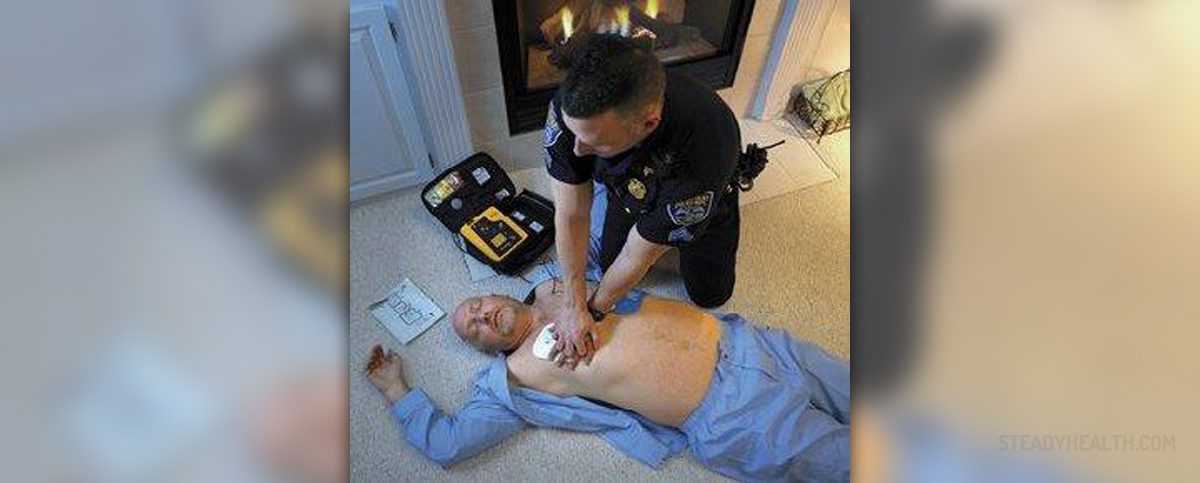
Sudden cardiac arrest can be defined as unexpected cessation of heart action which is associated with absence of breathing and loss of consciousness. The condition represents a medical emergency because once the heart stops pumping blood to the entire body, all the cells become deprived from oxygen and they soon die. The treatment must be prompt and efficient. If the patient is not resuscitated, he/she dies of sudden cardiac death.
Sudden Cardiac Arrest and Heart Attack
It is essential to differentiate sudden cardiac arrest from heart attack even though heart attack may be an underlying cause of sudden cardiac arrest. Namely, in heart attack there is occlusion of coronary artery/arteries which deprives the heart of oxygen. As a result heart cells in charge with transmission of electrical signals may become extremely excitative and trigger fatal fibrillation, commonly accompanied by sudden cardiac arrest. What is more, abnormalities in heart contractions may also develop some time after heart attack when scar tissue forms and triggers abnormal heart rhythms.
Why does Sudden Cardiac Arrest Occur?
As it has already been mentioned, sudden cardiac arrest is a consequence of abnormal heart rhythm due to malfunction of the electrical system of the heart. In the majority of cases sudden cardiac arrest is preceded by ventricular fibrillation, abnormal heart rhythm characterized by rapid, erratic electrical impulses that trigger quivering of the ventricles not allowing them to pump the blood into the circulatory system.
Many times arrhythmias do not occur spontaneously and there are underlying heart conditions that trigger an abnormal heart rhythm. Coronary artery disease and heart attack are definitely the most frequent causes of sudden cardiac arrest.
Furthermore, abnormal heart rhythm may affect individuals suffering from cardiomyopathy (heart enlargement), valvular heart disease, congenital heart diseases or patients in whom problems with heart muscle or valves initiate abnormalities in the heart electrical system.
The risk of sudden cardiac arrest is higher in people with a family history of the condition, smokers, patients suffering from hypertension, high levels of cholesterol in blood and diabetes. Obesity, heavy alcohol consumption and a sedentary lifestyle are also potential triggers of sudden cardiac arrest.
People who have already experienced cardiac arrest and those who have had a heart attack are highly likely to develop repeated sudden cardiac arrest.
Finally, it is estimated that the risk increases in men older than 45, women older than 55, people using illicit drugs and in case there is nutritional imbalance (especially the one comprising low potassium or magnesium levels).
Treatment Options
One needs to be treated promptly and only this way he/she will survive.
Cardiopulmonary resuscitation (CPR) is supposed to be performed immediately when the heart stops. Everybody should know how to perform CPR and help people in need. This is an artificial way of supplying the body with necessary oxygen. CPR should be performed until emergency personnel arrives and takes over the patient. Since emergency medical personnel simply cannot reach the patients within seconds and minutes by being familiar with CPR and performing it correctly, we can save patient's live and prevent severe brain damage that results from prolonged absence of oxygen.
What follows is reactivation of the heart muscles. This is achieved with electrical shocks delivered via a defibrillator. This device is generally used by emergency personnel. However, if the device is available to a trained citizen, he/she should not hesitate and use it at once.
Once patients reach emergency room, the goal is to stabilize all the vital functions and treat the underlying conditions that might have triggered sudden cardiac arrest. This particularly refers to heart attack, heart failure and electrolyte imbalances.
Once the condition is brought under control, doctors may opt for some medications that will keep recurrent arrhythmias at bay and prevent sudden cardiac arrest from developing again. Some of these medications are beta blockers, ACE (angiotensin-converting enzyme) inhibitors, calcium channel blockers and amiodarone, an antiarrhythmic agent efficient against many types of irregular heart beat. Some patients may not take the prescribed drugs because of their side effects.
Individuals with extremely irregular heart beat and those with risk of sudden cardiac arrest are recommended ICD (implantable cardioverter-defibrillator), a device that corrects abnormal heart rhythms and resets the heart's function as soon as they occur. ICDs are highly efficient against fatal heart arrhythmias.
There are several more surgical procedures such patients may require. These include coronary angioplasty, coronary bypass surgery, radiofrequency catheter ablation, corrective heart surgery or even heart transplantation.
All in all, the prognosis after sudden cardiac arrest is different among patients. Some patients may remain in coma for certain period of time and never regain consciousness. Others, on the other hand, soon become conscious again but they have to deal with different degree of damage to heart function.
Finally, apart from treatment these patients receive they are taught all the available preventive measures that may be efficient against repeated issues of this type.


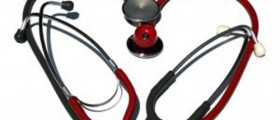
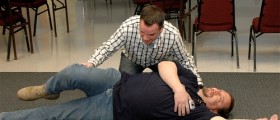


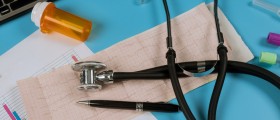
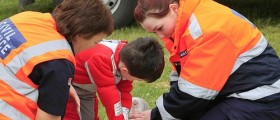

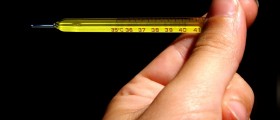
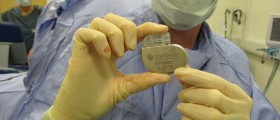
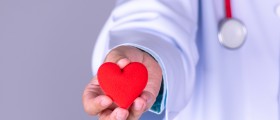
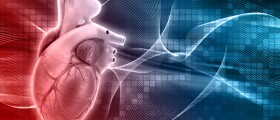
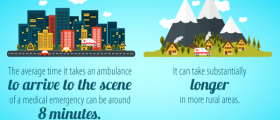
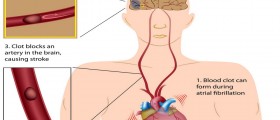
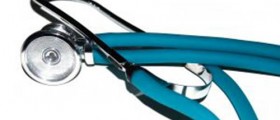
Your thoughts on this
Loading...